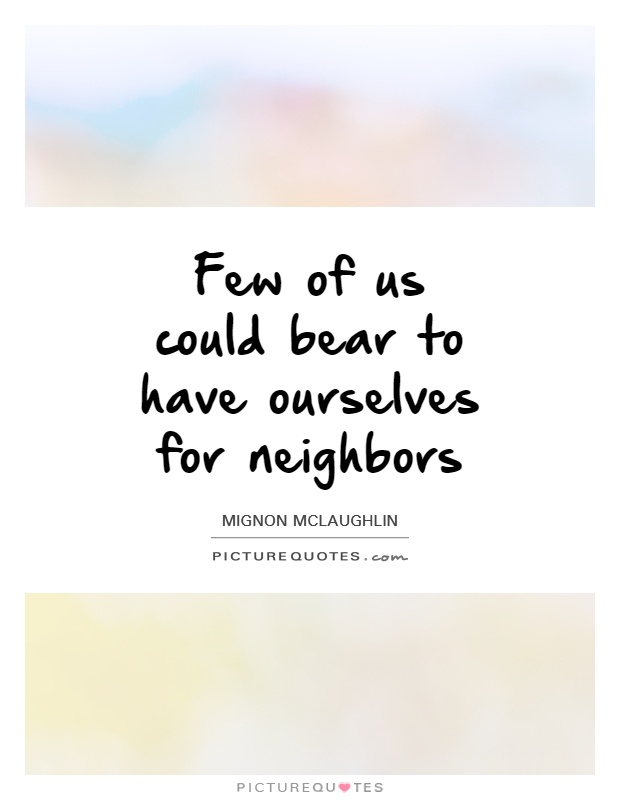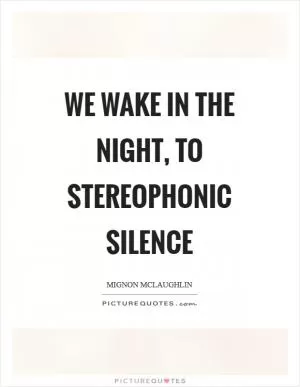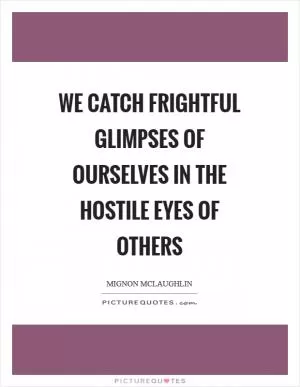Few of us could bear to have ourselves for neighbors

Few of us could bear to have ourselves for neighbors
In her book, "The Neurotic's Notebook," Mignon McLaughlin famously wrote, "Few of us could bear to have ourselves for neighbors." This quote speaks to the idea that we often struggle to accept and love ourselves fully, and that we may even find it difficult to be alone with our own thoughts and emotions.McLaughlin's words highlight the universal human experience of self-doubt and self-criticism. Many of us are our own harshest critics, constantly judging ourselves and finding fault in our actions, appearance, and choices. We may compare ourselves to others, feeling inadequate or unworthy in the process. This negative self-talk can be damaging to our self-esteem and overall well-being, making it challenging to truly accept and love ourselves.
The idea of not being able to bear ourselves as neighbors also speaks to the discomfort we may feel when faced with our own vulnerabilities and insecurities. It can be difficult to confront our own flaws and imperfections, and we may try to avoid or suppress these feelings rather than facing them head-on. This avoidance can lead to feelings of shame, guilt, and self-loathing, further perpetuating a cycle of negative self-perception.
Additionally, McLaughlin's quote suggests that we may struggle to be alone with ourselves because we fear what we may discover in the depths of our own minds. We may be afraid of facing our innermost thoughts and emotions, or of confronting unresolved issues from our past. This fear of self-reflection can prevent us from truly understanding and accepting ourselves, leading to feelings of loneliness and disconnection.
Overall, McLaughlin's quote serves as a reminder of the importance of self-compassion and self-acceptance. Learning to be kind and gentle with ourselves, and to embrace our imperfections and vulnerabilities, is essential for cultivating a sense of inner peace and contentment. By acknowledging and embracing all aspects of ourselves, we can begin to truly love and accept the person we see in the mirror, and become better neighbors to ourselves in the process.












 Friendship Quotes
Friendship Quotes Love Quotes
Love Quotes Life Quotes
Life Quotes Funny Quotes
Funny Quotes Motivational Quotes
Motivational Quotes Inspirational Quotes
Inspirational Quotes